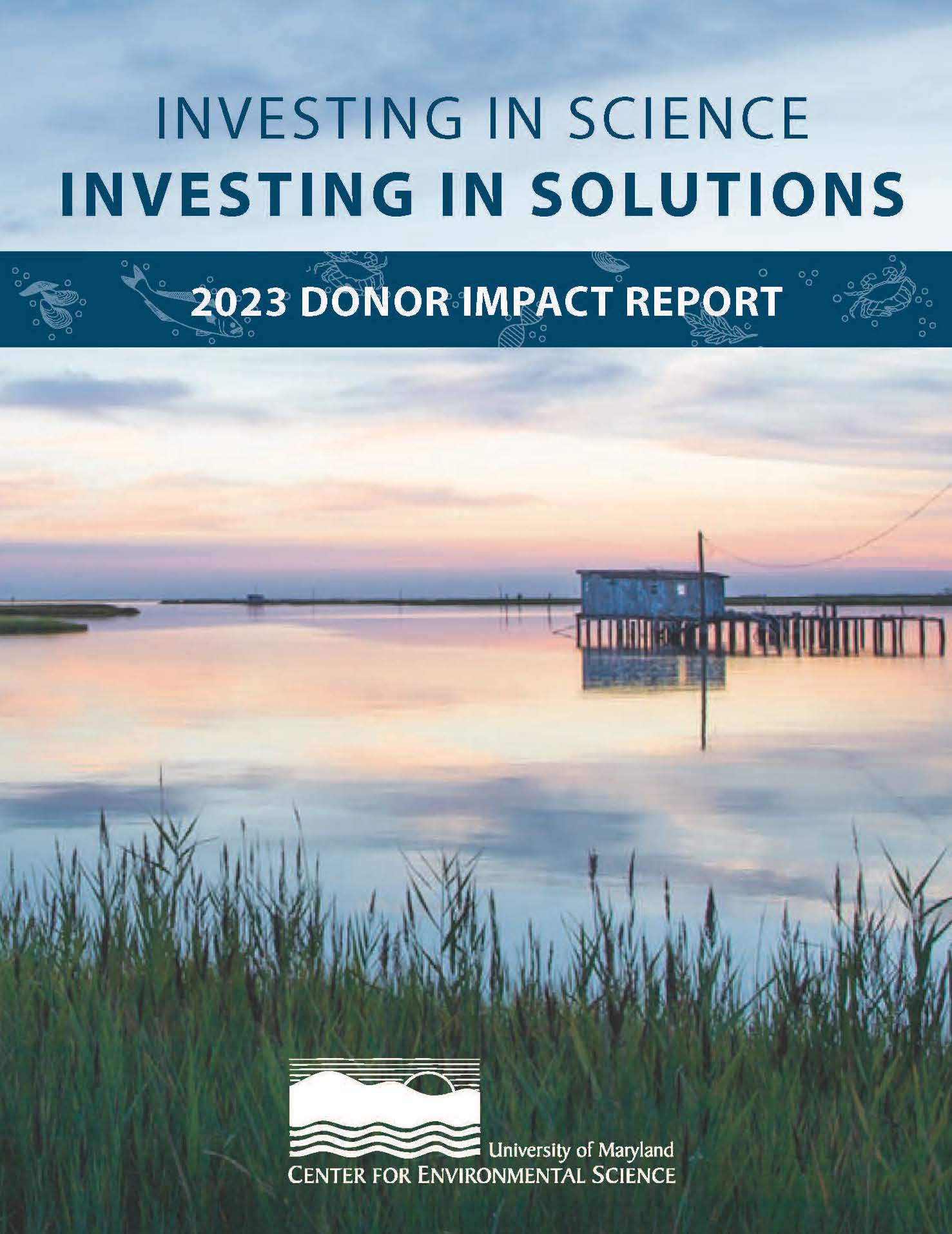Investing in science, investing in solutions
At the University of Maryland Center for Environmental Science (UMCES), we share your sense of urgency in addressing the vital environmental issues of the day.
Whether opening entire new avenues of environmental research, investing in cutting-edge innovation, providing important graduate student support, or fostering community engagement in watershed issues and citizen science, we are deeply grateful to partner with our donors in seeking solutions.
Every dollar donated to UMCES impacts the university’s work in a tangible and transformational way.
You can also support environmental research in your own backyard.
UMCES 2023 Donor Impact Report:
Investing in science, investing in solutions
At UMCES, we share your sense of urgency in addressing the vital environmental issues of the day, and are grateful to our donors who are making an impact supporting science.
DOWNLOAD REPORT
For more information on ways to give, contact Vice President for Advancement Lois Colaprete at 410-221-2003 or giving@umces.edu.

